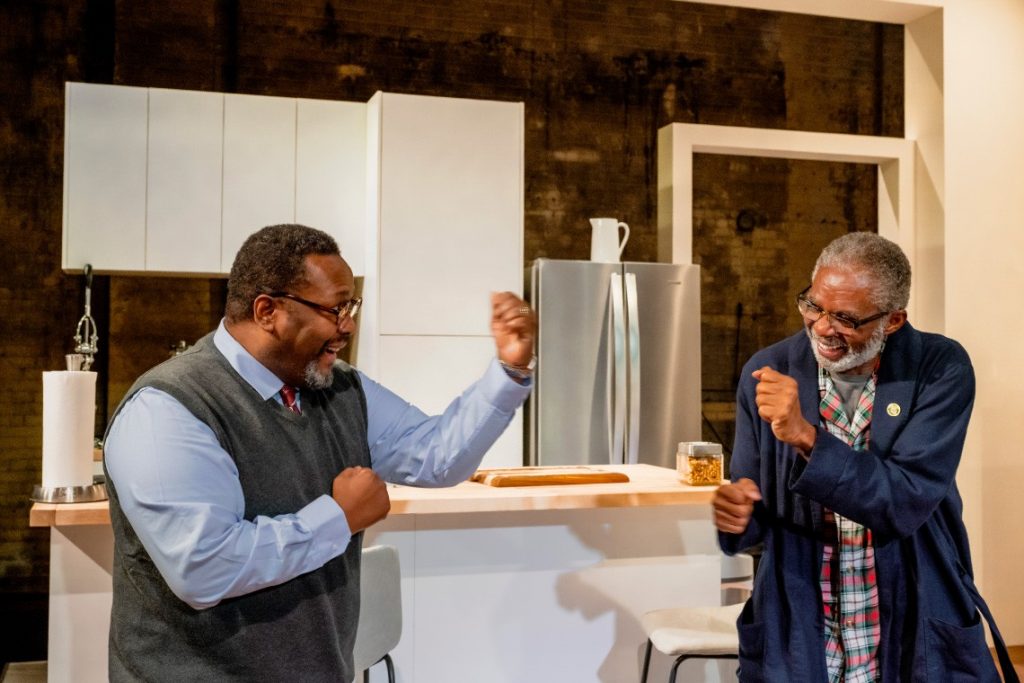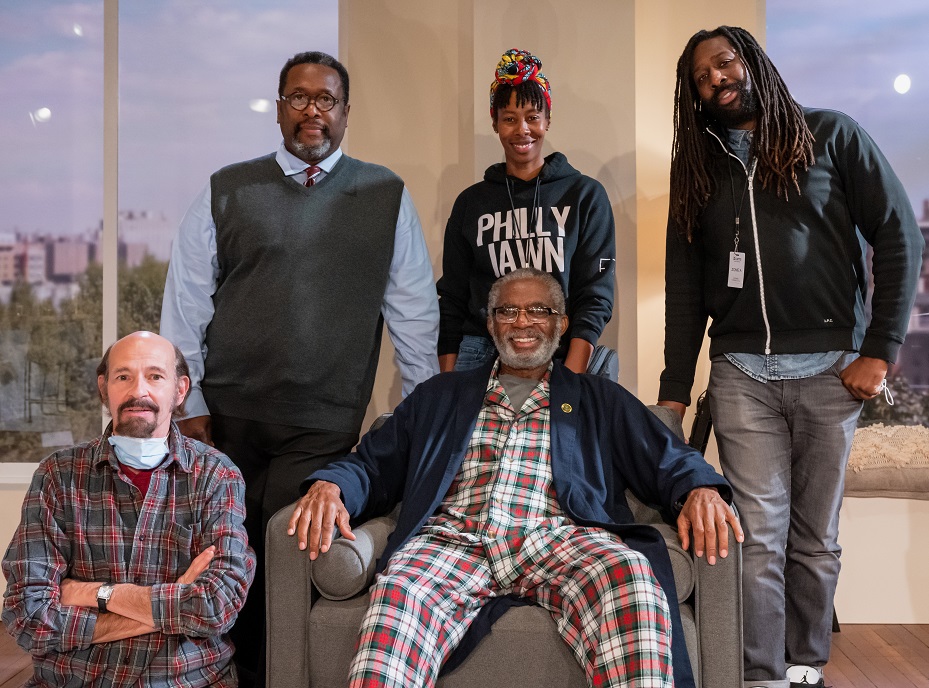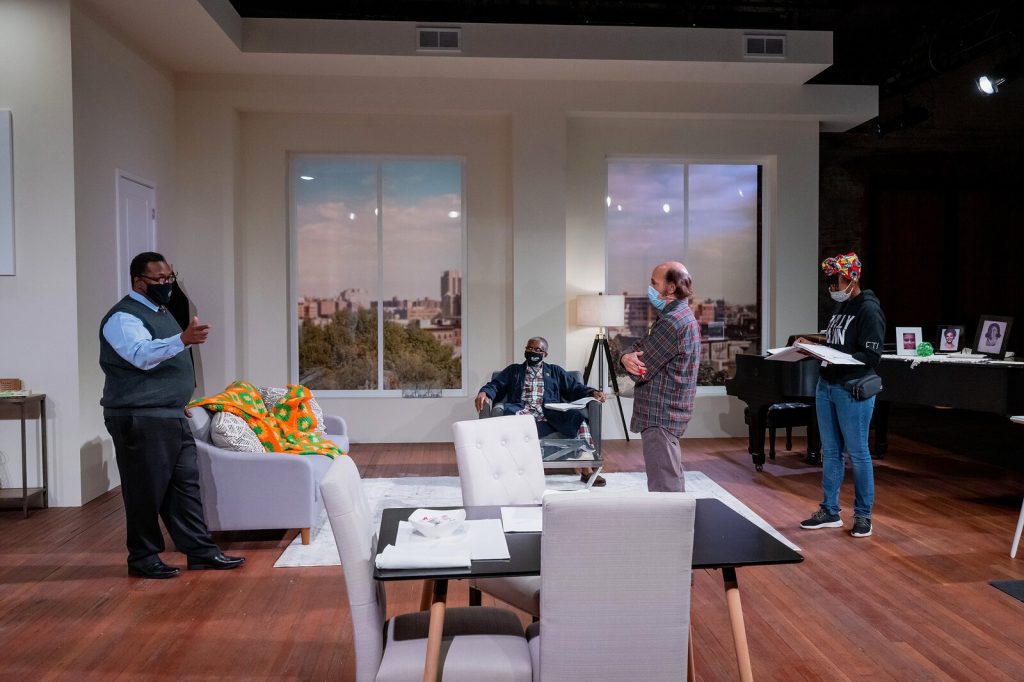
Until you understand its context within the play, you might consider the title both unimaginative and disparaging. In that sense, Some Old Black Man sets you up for the unexpected. Beautifully effective, in the end the ploy delivers a resonant message about people in conflict who find healing resolution. It does not come easy.
So rarely found in newspaper columns or on any sized screen, Clarence Jones (Wendell Pierce) might be thought atypical for a black man. A tenured college professor teaching in NYC, living in a penthouse and with a son in college, he’s a reflection of what American success looks like.
He has his burdens. His wife, whom he cherished, has died and his father, 82 and alone, has been falling repeatedly. As an only child, he’s made the decision to bring his father from his childhood home in Greenwald, Mississippi to live with him in NY. The two do not have a history of warmth and cordiality.
Playwright James Anthony Tyler wrote Some Old Black Man in graduate school; an admirable feat for someone so young. Certain understandings you expect only to be born of long experience. Tyler proves keen observation can deliver the same results. By looking inside out, he takes very large themes and reduces them to a very human and irresistibly personal scale. Some Old Black Man isn’t directly about race, aging or the friction embedded in so many father-son relationships. It’s about two men who find themselves grappling with each of those things because of the toss of the dice and the progression of time forces them to.

For just a three-day period (January 15 – 18), the University Musical Society (UMS), the University of Michigan’s cultural arm in Ann Arbor, where Mr. Pierce is in Digital Residency, streamed the play for free to the world. Production values were imposingly high. And because everything regarding the play’s preparation and staging was conducted in the throes of a pandemic, scrupulous care was taken to insure the well-being of everyone involved. A Covid Safety Officer oversaw the project in its entirety.
Scenic designer Jason Lang’s sleek representation of Clarence Jones’ urbane monochromatic high rise condominium with its sweeping city views helped emphasize the distance he’d come from his childhood and highlighted the psychic distance that still exists between himself and his father. When his Dad, Donald, played so richly by Charlie Robinson, introduces a brightly patterned throw to the living room couch, it instigates one of the many boundary challenges that pepper the play. Anyone who’s found themselves encouraging a parent to eat more healthfully or has unsuccessfully tried to coax them to fly on an airplane know the frustrations built into such exchanges.
A seasoned and prolific actor, Wendell Pierce is best known for his roles as Detective Bunk Moreland in The Wire, and that of quintessential jazz musician Antoine Batiste in Treme. Mr. Robinson’s celebrity crystallized in the late 80’s through the long running sitcom, Night Court. It’s gratifying to see him here taking on a leading dramatic role and mastering it so forcefully; giving full view of the powers contained in a talented and accomplished actor. His Donald has the stoic hard pride you find in many survivors. But because it’s mostly veneer, that hardness is also brittle and sensitive. The incremental physical and cognitive toll a diminishing body exacts from him makes him defensive, angry and psychologically aggressive. He pushes his son’s race button by slyly disparaging his associations with whites in a tonal vernacular any audiences would recognize as intentionally toxic. Clarence’s deceased wife was white and his father seems never to have understood or accepted the union. It’s the most daunting of the hurdles the two face. Watching them confront it is a lesson in determination and courage.

There was no desire to make the performance look like a movie. It was written as a play and directed and filmed to appear and feel, as much as possible, like one. The success in accomplishing this goal was one of the major pleasures in experiencing it.
Joe Cacaci’s elegant direction, in combination with Mr. Tyler’s bold and insightful writing, allowed the actors to take the audience to a world that was familiar, challenging and generously instructive.
Well received during its three-day virtual premiere, UMS is now looking to broaden the play’s distribution.